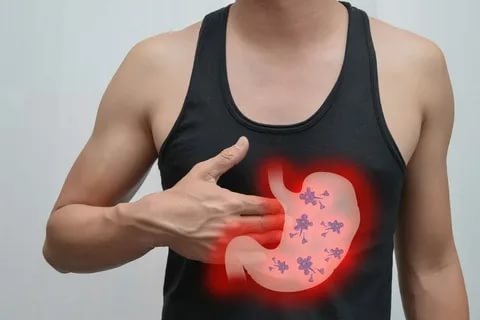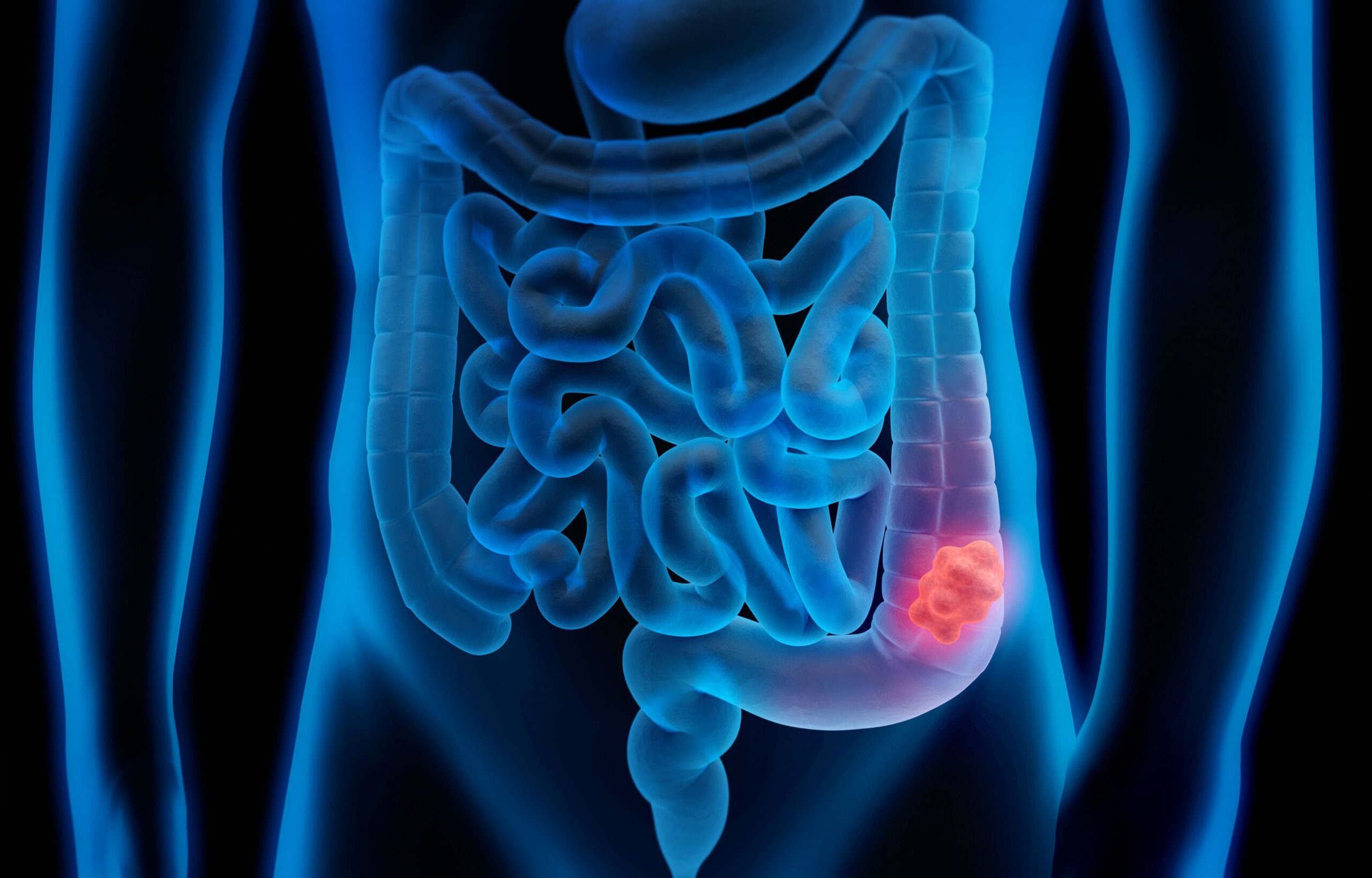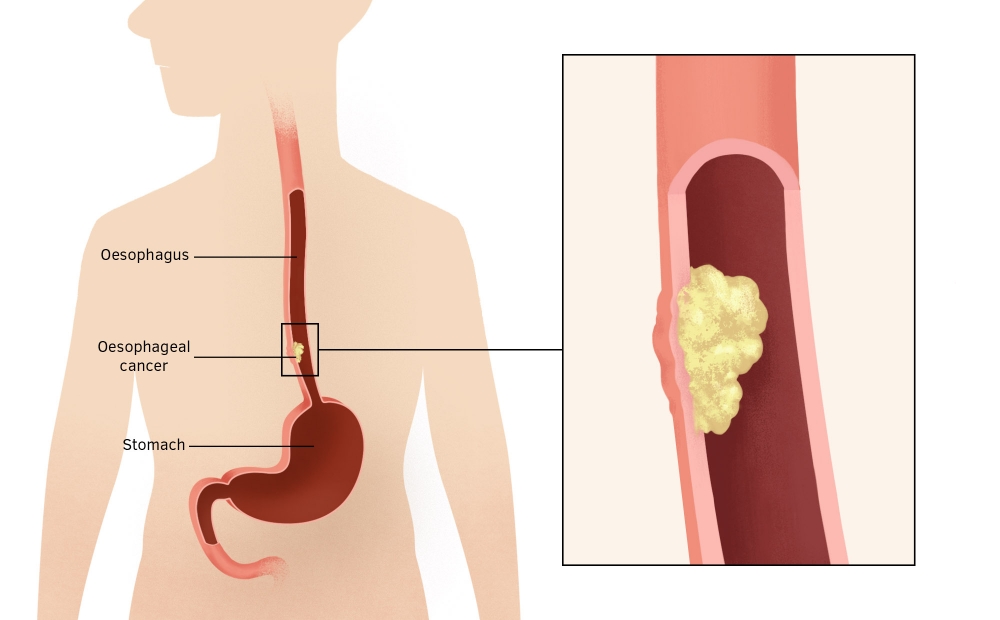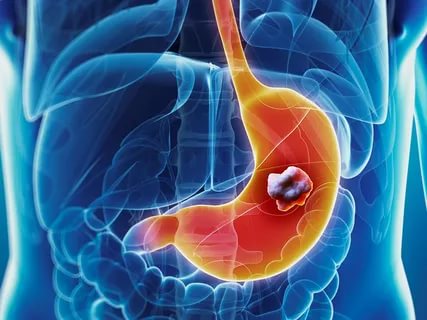-
Opening Hours
Mon - Sat: 10:00 - 19:00
TREATMENT
Gastric cancer
A malignant tumor of the stomach. Gastric cancer can develop in any part of the stomach and can spread from the stomach to other organs. Symptoms of stomach cancer are often vague, such as loss of appetite and weight.

Gastric cancer consist of three types :
1 . Colon cancer
Symptoms
- A persistent change in your bowel habits including diarrhoea or constipation or change in the consistency of your stool
- Rectal bleeding or blood in your stool
- Persistent abdominal discomforts such as cramps, gas or pain
- Feeling that your bowel doesn’t empty completely
- Weakness or fatigue
- Unexplained weight loss

Causes
Colon cancer begins when healthy cells in the colon develop changes in their DNA.
A cell’s DNA contains a set of instructions that tell a cell what to do.
Healthy cells grow and divide in an orderly way to keep your body functioning normally. But when a cell DNA Is damaged and becomes cancerous, cells continue to divide even when new cells aren’t needed.
As cells accumulate, they form a tumour.
With time, the cancer cells can grow to invade and destroy normal tissue nearby and cancerous cells can travel to other parts of the body to form deposits.
Risk Factors
- Old age
- H/o of colorectal cancer or polyp
- Inflammatory intestinal condition
- Inherited syndromes
- Family of colon cancer
- High-fat diet, sedentary lifestyle
- DM, Obesity, alcohol
- Radiation therapy for cancer
Homoeopathic Invention
As per the latest research in homoeopathy,
Oesophageal Cancer : Conflict related to the oesophagus is “not being able or not being allowed to swallow a morsel”.
Eg: One had expected a job, position, an inheritance, a proposal, but is unexpectedly not able to get.
A Promise that has not been kept, something of personal value that has been taken away from projects or plans one is unable to carry.
Stomach and Duodenum Cancer: Conflict-related is an indigestible morsel conflict. Male territorial anger conflict or a female identity conflict.
Territorial anger relates to anger in the environment places which one considers as his /her domain.
Eg: Disputes at home, frauds at the workplace, anger at school, battles over property or land etc.
Identity Conflict: Means inability to establish one’s position or place (“territory”), An unwanted move, change of school, or change of a workplace can activate the conflict. Feeling unsettled, not knowing where to belong, not finding one’s place in a relationship, within the family, the group at work, or in the culture and society.
Colon Cancer: Conflict-related is “Not being able to absorb or digest a morsel”.
Conflict is experienced as anger, about a person, friend, neighbour, a situation, relationship or accusations, insults, criticism or news that is hard to take or difficult to digest. Also, ugly fights over money over a property, ugly divorces, court cases or betrayals can cause it.
Homeopathic Approaches
Are progressively administered to an individual since they act on more than one condition of the body.
Homoeopathic treatment may provide some relief from the side effects of conventional cancer treatment.
For Cancer
2 . Oesophageal cancer
Symptoms
- Difficulty in swallowing
- Unintentional weight loss
- Chest pain
- Worsening indigestion
- Heartburn and coughing or hoarseness

Causes
It’s not exactly clear what causes oesophageal cancer.
Oesophageal cancer occurs when cells in the oesophagus develop changes (mutations)in their DNA.
The changes make cells grow and divide out of control.
The accumulating abnormal cells form a tumour in the oesophagus that can grow to invade nearby structures and spread to other parts of the body.
Types
- Adenocarcinoma- begins in the cells of Mucus-Secreting Glands in the Oesophagus.
- Squamous Cell Carcinoma- Occurs in the upper and middle portion of the Oesophagus.
- Rare type – Small Cell Carcinoma, Sarcoma, Lymphoma, Melanoma and Choriocarcinoma.
Risk Factors
- Gastroesophageal Reflux disease
- Smoking
- Obesity
- Drinking alcohol
- The habit of drinking hot liquids
Prevention
- Quit smoking
- Eat more fruits and liquids
- Maintain a healthy diet and weight
3 . Stomach Cancer
Symptoms
- Difficulty in swallowing
- The bloated feeling after eating
- Heartburn, nausea, stomach pain
- Unintentional weight loss
- Vomiting

Causes
A Cell’s DNA contains the instruction that tells the cell what to do.
The changes tell the cell to grow quickly and to continue living when healthy cells would die.
The accumulating cells form a tumour that can invade and destroy healthy tissue.
With time cells can break off and spread to other areas of the body.
Risk Factors
- Gastro-oesophageal reflux disease
- Obesity
- A diet high in salty and smoked foods
- A diet low in fruits and vegetables
- Family history of stomach cancer
- Infection with helicobacter pylori
- Smoking
- Gastritis
For appointment please call @ 020 27455480 / +91 9405 435 981